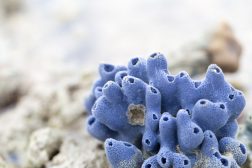Definition
noun, plural: avidities
The combined strength of bond affinities in a complex.
Usage
The term may be used in chemistry to describe the dissociation-dependent strength of an acid or base. In proteins, avidity describes the binding intensity of multiple bond interactions between proteins.
In immunology, avidity refers to the strength of antibody–antigen binding. In this regard, avidity may be different from affinity. The latter being a term used to describe the strength of a particular bond, i.e. the affinity of an antibody for the antigen as the strength of a non-covalent association between an antigen-binding site with a single antigenic epitope1. For instance, IgM may have low affinity but it has high avidity due to its 10 weak binding sites contrary to the two strong binding sites of IgG.
Miscellaneous
Compare: affinity
See also: antibody-antigen complex, protein
Reference:
1Mak, Tak W. and Mary E. Saunders. Primer to the Immune Response. Amsterdam: Academic/Elsevier, 2008. 74.
Dictionary > Avidity
You will also like...

Fish
The sea was teeming with life. Eventually, through reproduction and continued variation, fish came about. There are over..

Movement of Molecules Across Cell Membranes
Molecules move within the cell or from one cell to another through different strategies. Transport may be in the form of..

Chemical Composition of the Body
The body is comprised of different elements with hydrogen, oxygen, carbon, and nitrogen as the major four. This tutorial..

Genetics – Lesson Outline & Worksheets
Topics Modules Quizzes/Worksheets Description Introduction to Genetics Genetics – Definition: Heredity and ..

Genetic Information and Protein Synthesis
Genes are expressed through the process of protein synthesis. This elaborate tutorial provides an in-depth review of the..

Primitive Animals
Life, as we know it today, is presumed to have started in the sea and many of them were likely eukaryotic animal-like or..
